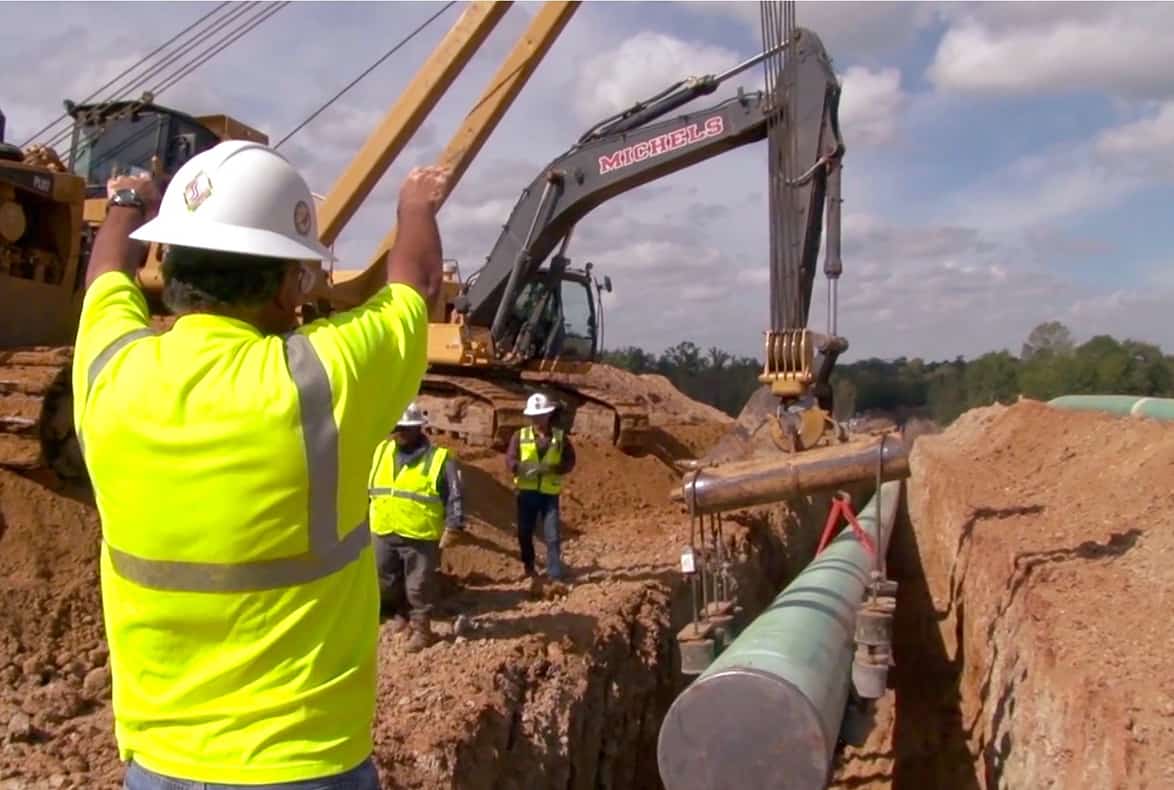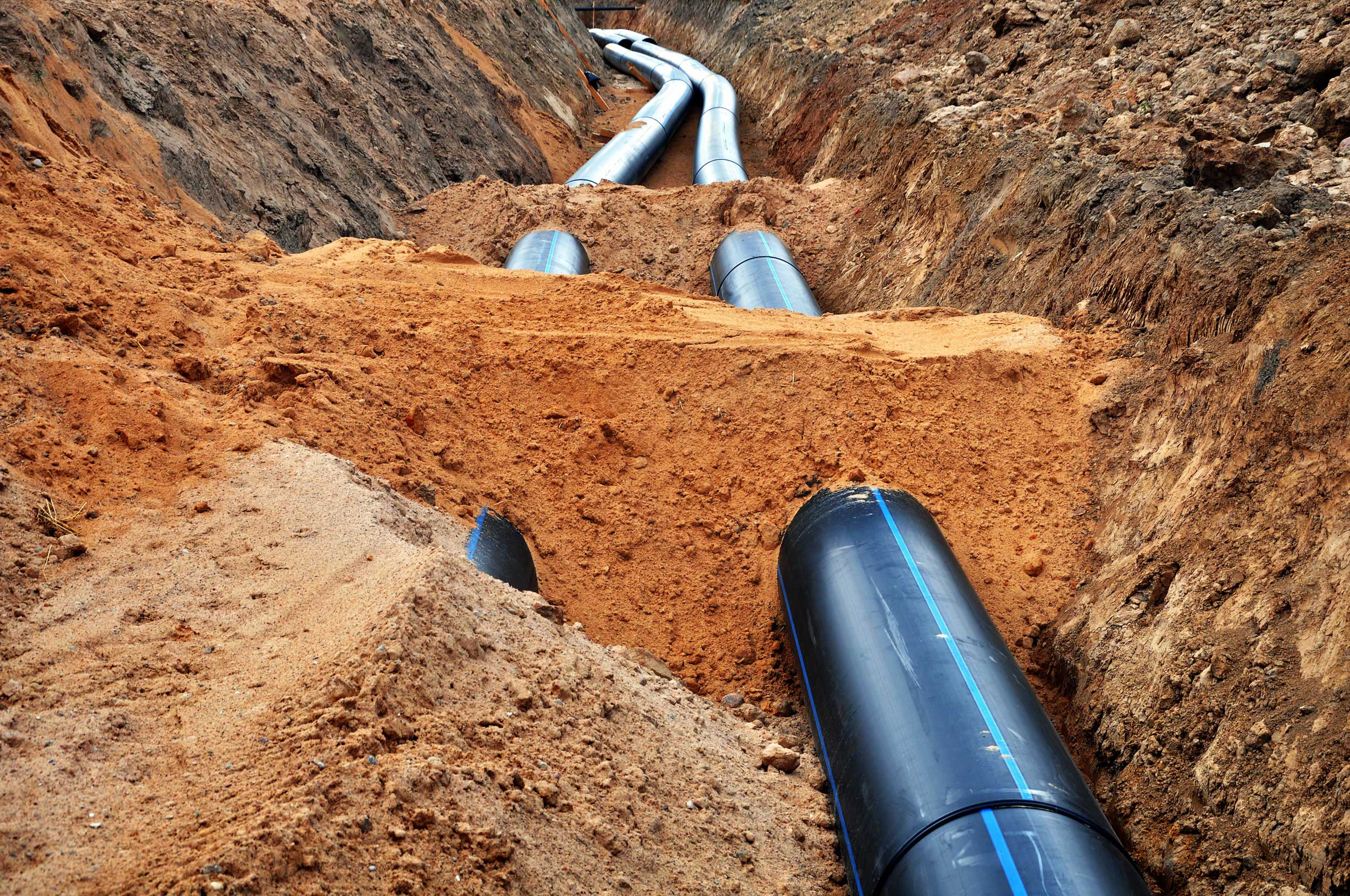A Comparison of Pipe Materials With Help From Creek Pipe Company
Wiki Article
A Deep Study Pipes Installation: Necessary Aspects and Factors To Consider for Successful Projects
Efficient pipe installation is a vital element of engineering projects. It involves a variety of variables, from product choice to accurate sizing and design. Each decision can especially affect the system's effectiveness and longevity. Understanding these parts is crucial for staying clear of expensive mistakes. Creek Pipe pipeline construction. As groups browse through the intricacies of installation, a number of essential factors to consider emerge that warrant interest. What are the critical elements that can make or damage a piping project?Understanding Pipe Products and Their Applications
When selecting pipe materials, one should consider the details applications and environmental problems they will face. Various materials use distinct homes that satisfy numerous demands. As an example, PVC is light-weight and resistant to deterioration, making it suitable for water distribution systems. Alternatively, steel pipes give strength and durability, appropriate for high-pressure applications yet may call for protective finishings to prevent rust.Copper pipes are preferred for plumbing because of their antimicrobial properties and simplicity of installation, while polyethylene is usually used in underground applications as a result of its flexibility and resistance to cracking.The option of material additionally depends upon temperature level extremes, chemical direct exposure, and installation location. For high-temperature applications, materials like CPVC or PEX can be helpful. Inevitably, understanding the qualities and restrictions of each product help in making informed decisions that improve system performance and long life.Importance of Proper Sizing and Style
Appropriate sizing and style of pipelines are critical for guaranteeing suitable circulation rates and minimizing pressure loss. These aspects likewise play a substantial duty in establishing the compatibility of products made use of in the installation. A systematic technique to sizing and layout can substantially boost the performance and long life of a piping system.Effect On Circulation Prices
Circulation rates in piping systems are critically influenced by the sizing and design of the pipelines. Properly sized pipelines assure that the liquid can relocate effectively, reducing turbulence and optimizing circulation capability. Oversized pipelines can bring about lowered circulation speeds, while undersized pipelines might restrict flow, causing raised rubbing and prospective blockages. The layout has to likewise think about factors such as pipe product, interior surface level of smoothness, and format, as these contribute to the overall performance of fluid transport. In addition, the plan of fittings and links within the system can affect circulation prices. Thorough interest to pipe sizing and design is crucial for maximizing flow efficiency in any type of piping installation task.Pressure Loss Factors To Consider

Exactly how can push loss considerably influence the efficiency of a piping system? Stress loss is a critical factor that can significantly diminish the performance of liquid transportation systems. When pipes are improperly sized or created, too much pressure loss may happen, leading to lowered circulation prices and enhanced power consumption. This ineffectiveness can lead to greater functional costs and potential system failures. Appropriate sizing and layout are necessary to minimize pressure loss, making sure that liquid characteristics continue to be ideal throughout the system. Engineers should very carefully take into consideration variables such as pipe size, size, and material to achieve an effective balance. Ultimately, dealing with pressure loss during the design phase can enhance reliability and longevity, making it important for effective piping jobs.
Material Compatibility Aspects
Pressure loss is not the only factor that can affect the performance of a piping system; material compatibility also plays a significant function in general effectiveness. Guaranteeing that the materials used in a piping system work with the liquids they will certainly deliver is necessary. Various materials can react detrimentally to numerous chemicals, bring about rust, deterioration, or contamination. This can ultimately endanger the honesty of the system and impact its longevity. Additionally, correct sizing and style are essential to suit thermal growth and contraction, which can further affect material efficiency. Examining elements such as temperature, stress, and chemical composition is critical in picking suitable products, consequently enhancing system integrity and minimizing maintenance prices in the long term.Methods for Accurate Pipe Installation
Exact pipe installation is important for ensuring system performance and longevity. A number of strategies can enhance the precision of this procedure. Initially, careful measurement is crucial; installers should utilize high quality devices such as laser degrees and measuring tape to figure out the specific sizes and angles required. Next, proper pipe cutting methods, like utilizing a pipeline cutter rather of a hacksaw, assurance tidy sides that assist in far better links. In addition, the usage of placement devices, such as pipe jigs, can especially boost precision throughout setting up. It is additionally suggested to take into consideration thermal development; enabling ample spacing and development joints can protect against future imbalances. Ultimately, the installation group must comply with maker guidelines to stick to specific recommendations associated with each pipe kind. By carrying out these methods, the likelihood of leakages and system failings reduces, ultimately contributing to an extra trusted piping system.Making Certain Pipe Positioning and Support
Correct placement and assistance are vital to the stability and efficiency of any kind of piping system. Misalignment can lead to boosted tension on joints, potential leakages, and decreased efficiency. To ensure correct positioning, it is important to utilize proper tools such as laser degrees and alignment determines. These instruments aid accomplish precise positioning, guaranteeing that pipes are mounted based on design specifications.Support systems need to be designed to fit thermal expansion and tightening, as well as the weight of the pipes and their materials. Selecting the appropriate type of assistances, wall mounts, and braces is necessary. Each ought to be mounted at specified intervals to protect against sagging or unnecessary stress and anxiety on the pipes. Routine inspections complying with installation can help determine any type Creek Pipe trenching services of misalignments or indications of inadequate support. By prioritizing placement and support, one can significantly boost the resilience and performance of the piping system.Usual Installation Mistakes to Prevent

Evaluating and Assessment for High Quality Assurance
The installation process may show up full, complete testing and inspection are critical to making certain the lasting dependability of a piping system. Various methods are used to examine the integrity of the installation, consisting of stress tests, aesthetic assessments, and non-destructive testing (NDT) strategies. Pressure tests confirm that the system can endure functional problems without leaks, while aesthetic evaluations aid determine any noticeable problems in the pipelines or joints. NDT techniques, such as ultrasonic or radiographic screening, offer insights right into the material stability without compromising the system.Additionally, recording the testing results is crucial for future recommendation and conformity with industry criteria. This documentation offers not only as a quality control procedure however also as a lawful secure. Ultimately, a detailed testing and examination procedure adds to the overall security and performance of the piping system, ensuring it satisfies the necessary efficiency standards gradually.Upkeep Tips for Lasting Pipe Solutions
Keeping a pipe system needs normal inspections and keeping an eye on to recognize potential problems prior to they escalate. Carrying out reliable cleansing techniques is likewise crucial for protecting against buildup that can impede efficiency. With each other, these techniques add to the longevity and dependability of the piping facilities.Normal Evaluations and Tracking
Routine assessments and surveillance are crucial for ensuring the longevity and efficiency of pipe systems. Regular evaluations can aid recognize potential issues such as leaks, corrosion, or blockages prior to they rise right into substantial troubles. Applying a timetable for regular assessments permits the early detection of wear and tear, making it possible for prompt fixings. Surveillance stress levels and flow prices can additionally supply useful insights into system efficiency, making certain that any kind of anomalies are attended to without delay. In addition, the use of advanced innovations, such as infrared video cameras or ultrasonic testing, can improve the assessment process by offering comprehensive details concerning pipe problems. Ultimately, constant tracking and evaluations add to the reliability and toughness of pipe systems, decreasing the threat of expensive repairs and downtime.
Efficient Cleaning Up Strategies
Efficient cleaning methods are essential for preserving the stability and capability of pipe systems. Regularly set up maintenance, such as flushing systems with water, assists get rid of particles and build-up. For even more stubborn clogs, professionals frequently advise hydro jetting, which uses high-pressure water to tidy pipe interiors extensively. Chemical cleaners can likewise be utilized yet should be picked very carefully to prevent harmful pipelines. Additionally, using tools like pipe electronic cameras can assist in determining trouble areas and guaranteeing effective cleaning. Maintaining proper drainage and staying clear of the disposal of harmful materials down pipelines additionally contribute to longevity. Overall, constant cleaning methods not just enhance efficiency but additionally lower the danger of expensive repairs in the future.Frequently Asked Inquiries
What Are the Labor Costs Related To Pipe Installation Projects?
Labor costs for pipe installation tasks vary widely, influenced by elements like project intricacy, regional wage rates, and required abilities (Creek Pipe reviews). Generally, these prices can vary from $50 to $100 per hour, depending upon the labor force entailedHow Do Regional Rules Affect Pipe Installation Practices?
Neighborhood guidelines substantially affect pipe installation practices by establishing safety and security requirements, product specifications, and installation approaches. Conformity with these laws guarantees project safety, environmental defense, and adherence to neighborhood codes, inevitably influencing overall task success and expenses.What Tools Are Important for Pipe Installation?
Important devices for pipe installation consist of pipe wrenches, cutters, and installations. Additionally, sealers, gauging tapes, and degrees ensure accuracy and durability. Correct tools promotes effectiveness and adherence to safety and security standards during the installation procedure.Exactly How Can Weather Condition Conditions Influence the Installation Process?
Climate condition significantly influence the installation process, as extreme temperature levels, rainfall, or wind can affect material stability, worker safety and security, and project timelines. Proper preparation and organizing are vital to minimize these possible obstacles during installation.Exist Service Warranties for Mounted Pipe Solutions?
Guarantees for mounted pipe systems often differ by manufacturer and installation service provider. Typically, they cover problems and workmanship for a specific duration, making certain the system's integrity and giving peace of mind to the homeowner.Report this wiki page